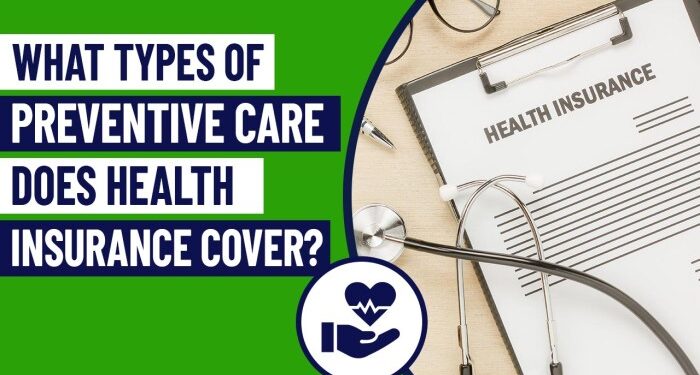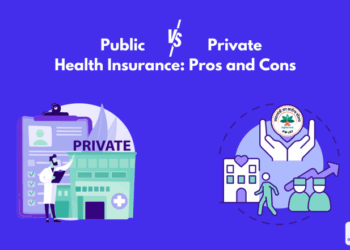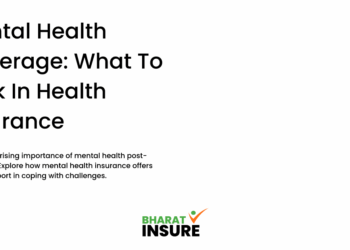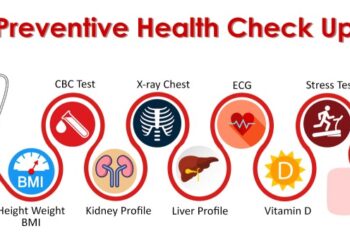Exploring the realm of preventive health care covered by insurance opens up a world of possibilities for individuals looking to prioritize their well-being. From routine screenings to immunizations, this topic delves into the proactive measures that can ultimately lead to long-term health benefits.
Let's delve into the intricacies of preventive health care and how insurance plays a crucial role in promoting a healthier lifestyle.
Importance of Preventive Health Care
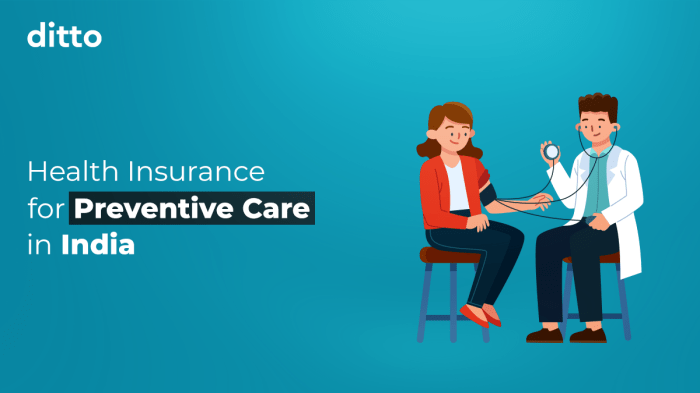
Preventive health care plays a crucial role in maintaining overall well-being by focusing on early detection and prevention of potential health issues. By investing in preventive measures, individuals can reduce the risk of developing serious illnesses and improve their quality of life.
Examples of Preventive Health Care Measures Covered by Insurance
- Regular health screenings such as blood pressure checks, cholesterol tests, and mammograms.
- Immunizations and vaccinations to prevent infectious diseases.
- Annual physical exams to monitor overall health and detect any underlying conditions.
- Counseling and education on healthy lifestyle choices, including diet and exercise.
Long-Term Benefits of Investing in Preventive Health Care
Preventive health care not only saves lives but also reduces healthcare costs in the long run. By detecting and treating health issues early, individuals can avoid more expensive treatments and hospitalizations later on. Moreover, maintaining good health through preventive measures leads to increased productivity, improved quality of life, and overall well-being.
Types of Preventive Health Care Covered by Insurance
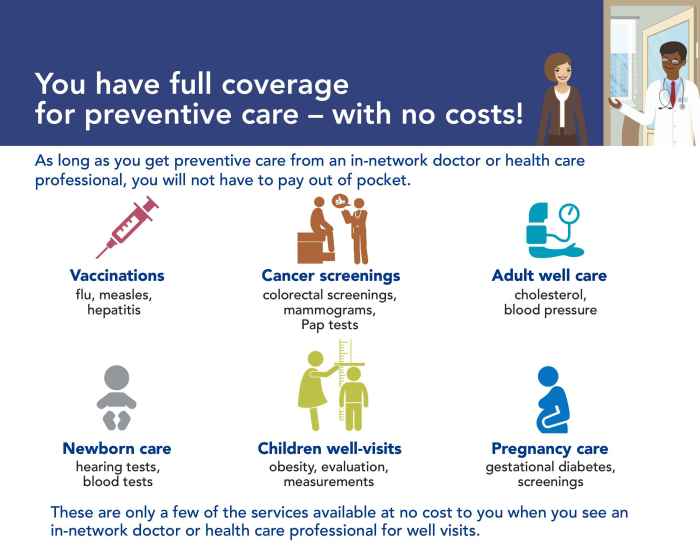
Routine check-ups and preventive screenings are crucial aspects of maintaining good health and preventing potential health issues. Insurance coverage for preventive care plays a vital role in promoting overall well-being and early detection of health conditions. Let's explore some common preventive health care services covered by insurance:
1. Routine Check-ups
Regular visits to healthcare providers for comprehensive physical examinations are typically covered by insurance. These check-ups help monitor overall health, identify any potential risks or concerns, and allow for timely interventions if needed.
2. Screenings
Insurance often covers various screenings such as blood pressure checks, cholesterol tests, mammograms, colonoscopies, and Pap smears. These screenings are essential for early detection of conditions like hypertension, high cholesterol, breast cancer, colon cancer, and cervical cancer.
3. Vaccinations and Immunizations
Insurance plans usually include coverage for vaccines and immunizations against diseases like influenza, measles, mumps, rubella, hepatitis, tetanus, and more. Vaccinations are crucial in preventing the spread of infectious diseases and protecting both individuals and communities.
4. Counseling and Preventive Services
Some insurance plans also cover counseling services for smoking cessation, weight management, mental health, and preventive services such as flu shots, nutrition counseling, and wellness programs. These services aim to promote healthy lifestyle habits and prevent chronic diseases.
5. Preventive Medications
Certain preventive medications like aspirin for cardiovascular health or statins for cholesterol management may also be covered by insurance. These medications are prescribed to reduce the risk of developing specific health conditions and are essential components of preventive care.
6
. Genetic Testing
In some cases, insurance may cover genetic testing for hereditary conditions or predispositions to certain diseases. This type of testing can help individuals understand their genetic risks and take proactive measures to prevent or manage potential health issues.
Cost-Effectiveness of Preventive Health Care
Preventive health care is not only beneficial for individuals' well-being but also leads to cost savings in the long run. By investing in preventive measures, individuals can reduce the risk of developing serious health conditions, ultimately avoiding costly treatments for advanced illnesses.
Comparison of Costs
When comparing the costs of preventive measures versus treatment for advanced illnesses, the difference is significant. Preventive care, such as regular check-ups, screenings, and vaccinations, is often more affordable than treating diseases in their later stages. For example, the cost of a flu shot is minimal compared to the expenses associated with hospitalization due to severe flu complications.
Insurance Coverage Encouragement
Insurance coverage for preventive care plays a crucial role in encouraging individuals to prioritize their health. When preventive services are covered by insurance, individuals are more likely to seek out these services, leading to early detection and prevention of diseases.
This proactive approach not only improves health outcomes but also reduces overall healthcare costs for both individuals and insurance providers.
Access to Preventive Health Care
Access to preventive health care is critical in promoting overall well-being and preventing serious health issues. Insurance coverage plays a significant role in improving access to these essential services, ensuring that individuals can receive necessary screenings, vaccinations, and check-ups without financial barriers.Disparities in access to preventive care exist, with marginalized communities often facing challenges in receiving timely and quality health services.
Insurance coverage can help address these disparities by providing individuals with the means to access preventive care services that they may otherwise not be able to afford.
Initiatives to Increase Access
- Community Health Centers: These centers offer comprehensive preventive health services to underserved populations, regardless of their ability to pay. They play a vital role in increasing access to care for those who are uninsured or underinsured.
- Telemedicine Services: Virtual consultations and remote monitoring can improve access to preventive care for individuals living in rural or remote areas, where healthcare facilities may be limited.
- Mobile Clinics: These mobile units bring preventive health services directly to communities that lack access to traditional healthcare facilities, increasing convenience and reducing barriers to care.
- Health Education Programs: Initiatives that focus on educating individuals about the importance of preventive care and how to access services can help improve awareness and utilization of preventive health services.
Wrap-Up
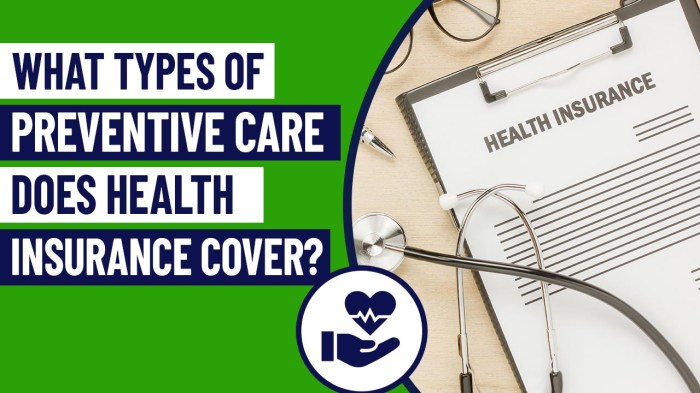
In conclusion, the discussion on preventive health care covered by insurance sheds light on the importance of early interventions and regular check-ups in maintaining optimal health. By investing in preventive measures, individuals not only safeguard their well-being but also potentially save on healthcare costs in the future.
It's clear that insurance coverage for preventive care serves as a catalyst for individuals to take charge of their health and well-being.
User Queries
What preventive health care measures are covered by insurance?
Common preventive health care services covered by insurance include annual check-ups, screenings for various conditions, and vaccinations.
How can preventive health care lead to cost savings?
Preventive health care can lead to cost savings by identifying health issues early on, preventing the need for expensive treatments for advanced illnesses.
What initiatives aim to increase access to preventive health care services?
Initiatives such as community health fairs, mobile clinics, and outreach programs aim to increase access to preventive health care services for individuals.

